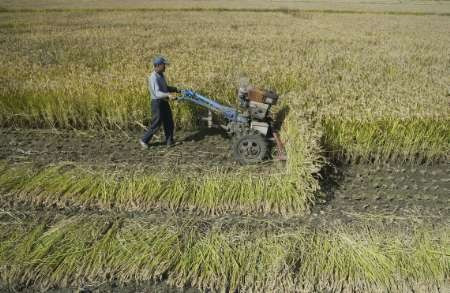Durban Climate Change Summit: Oxfam Urges Climate Action to Prevent Hunger and Poverty

Firm action is required at a forthcoming global climate summit to prevent increasing global hunger and poverty, warned a leading global relief fund.
Failure to take firm action at the climate change conference (COP17) in Durban, South Africa, would risk pushing millions of people further into hunger and poverty, Oxfam officials said.
Oxfam climate change spokesperson Kelly Dent said food price instability was having a devastating impact on the world's poor.
"We are currently seeing the worst levels of volatility in food prices in the past 40 years," Dent said ahead of the talks, which started Monday and is expected to last until Dec. 9.
"Hopefully we can jointly develop the solutions demanded by us at a time when our planet is facing a crisis," South Africa President Jacob Zum said in a video message.
The summit is the 17th iteration of the Conference of the Parties (COP17) to the United Nations Framework Convention on Climate Change. The conference brings together government, private and non-profit agencies to discuss and plan strategies and policies meant to address climate change.
The summit started in 1997 in Bonn Germany and culminated in its third session with the adoption of the Kyoto Protocol, an international treaty meant to reduce greenhouse gases that only the U.S. has not ratified.
Extreme weather events shocked global markets in 2010, contributing to soaring wheat prices and risking food security in many parts of the world, according to research compiled by Oxfam.
Weather patterns in 2011 could be a bleak forecast of what is to come, as new warnings issued by the Intergovernmental Panel on Climate Changeshow extreme weather events are likely to increase in frequency and severity unless serious action is taken to tackle climate change.
"From the Horn of Africa and Southeast Asia to Russia and Afghanistan, a year of floods, droughts, and extreme heat has helped push tens of millions of people into hunger and poverty," Dent said.
"This will only get worse as climate change gathers pace and agriculture feels the heat. Governments must act now in Durban to protect our food supply and save millions from slipping into hunger and poverty."
An Oxfam briefing paper, titled "Extreme weather endangers food security", highlights the effect of extreme weather around the world on global, regional and local food insecurity since 2010.
Drought in the Horn of Africa left 13 million people at risk of hunger, increasing the price of maize in Somalia by 393 percent and in Ethiopia by 191 percent.
A heat wave that ignited fires and drought in Russia and Ukraine provoked a 60 to 80 percent increase in global wheat prices in just three months after much of the 2010 harvest was destroyed.
Heavy monsoonal rains in Southeast Asia increased the price of rice in Thailand and Cambodia by 25 percent and 30 percent respectively in a year.
According to World Bank estimates, food price spikes between June and December 2010 may have impoverished 44 million more people.
"When a weather event drives local or regional price spikes, poor people often face a double shock," Dent said.
"They have to cope with higher food prices at a time when extreme weather may have also killed their livestock, destroyed their home or farm, or stripped them of their livelihood. This toxic mix of higher prices and lower purchasing power has driven many people into crisis this year."
"If we don't act in Durban, this pattern could become even worse."
Oxfam is urging governments to continue the Kyoto Protocol and increase their emissions cuts before 2020, after which, it says, it will be too late to keep climate change below the two degrees Celsius target agreed at last year's Cancun negotiations.
"Governments must build on the past, by continuing Kyoto, planning for a future legal deal to further slash emissions before 2020 and by mobilising the finance poor people need now to cope with climate change," Dent said.
© Copyright IBTimes 2025. All rights reserved.





















